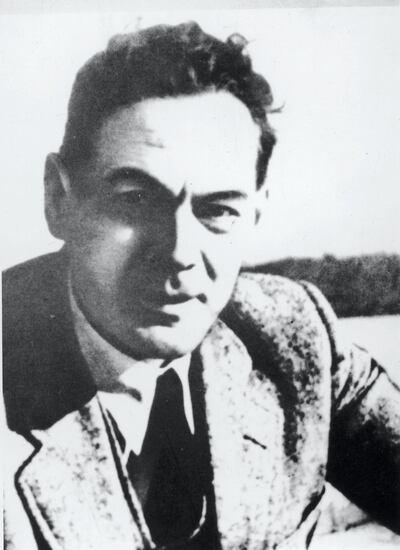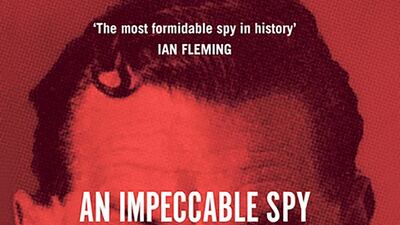Anyone who doubts the quality of intelligence that can be provided by a well-placed spy should take a close look at the extraordinary life and times of Richard Sorge. He was the Russian agent that Ian Fleming, the creator of James Bond, once described as "the most formidable spy in history".
Sorge was a German communist who worked his way through the Soviet intelligence apparatus to become Russia's eyes and ears in Imperial Japan. Sorge became such a master of his trade that he was able to provide Moscow with information that had a profound influence on Soviet policy during the Second World War.
Thanks to the contacts he cultivated in wartime Tokyo, Sorge predicted the German invasion of the Soviet Union, Operation Barbarossa, something Stalin refused to believe was possible because of the non-aggression pact he had signed with Adolf Hitler in 1939. But by far the most vital intelligence Sorge provided concerned Japan's Imperial Armed Forces. He told Moscow the Japanese did not have sufficient strength to launch an invasion of Siberia, a potential move that was causing Stalin great consternation.
This information proved central to Stalin's plans for the defence of the Soviet Union following Hitler's fateful decision to invade. The Soviet leader was deeply concerned that Moscow might lose the war if his troops were required to fight on two fronts, against the Germans in the West and the Japanese in the East. Thus, when Sorge revealed Japan was more interested in extending its influence west into Indochina and beyond, Stalin was able to redeploy vital divisions from the Siberian front to the defence of Moscow, which proved to be a turning point in the critical battle for the city in the winter of 1941.
It is no understatement to conclude that, without the intelligence Sorge provided about Japanese intentions, the outcome of the Second World War might have been profoundly different.
British author and journalist Owen Matthews explains in his highly readable and immaculately researched book, An Impeccable Spy: Richard Sorge, Stalin's Master Agent, that as a young man, Sorge had drifted into the world of espionage due to the profound despair he felt about the fate of the western capitalist system. Much like Kim Philby, another renowned 20th-century spy, Sorge believed the political system had betrayed the working class, whose plight could only be saved by fully embracing the communist ideology of Karl Marx.
The disillusionment of Sorge, who was born in Baku in 1895 to a German father and a Russian mother, stemmed from his bitter experience of fighting on the western front for the Germans during the First World War. He described this as "Kindermord" – the murder of the innocents.
He joined the Communist Party and soon found himself in Moscow, where he was eventually recruited into the ranks of the Soviets' so-called Fourth Department, the forerunner of the NKVD and KGB intelligence services. After proving his credentials, and his loyalty, by spying successfully in Britain and Berlin, Sorge was sent to Shanghai in 1930 as one of Moscow's "rezidents", or illegal spy networks.
But as Matthews, whose account is bolstered by the unique access he had to the Russian archives of the period, points out, it was not until Sorge was sent to Tokyo in 1933, a period when Japanese militarism was on the rise, that he came into his own. The Soviets were preoccupied with Japan's imperial ambitions regarding the puppet-state of Manchuria, close to the border with Siberia. As a result of cultivating contacts within Japanese imperial circles, as well as developing a close relationship with the German ambassador to Tokyo, Sorge, who also joined the Nazi party to improve his cover, provided a gold mine of information for his Kremlin spymasters.

Had it not been for a slip-up by one of the members of his team, Sorge may well have continued his espionage activities undetected until the end of the war. The Japanese authorities were already aware that a transmitter was being used to send Sorge's intelligence reports to Moscow, and when they discovered its whereabouts, thanks to a chance remark by one of Sorge's accomplices, his spy ring was rounded up easily.
Sorge's fate – he was hanged by the Japanese in 1944 – is a salutary tale of how even the most valued spies can be regarded as expendable commodities by the masters they serve once those agents are no longer useful.
Sorge believed until his death that the Russians would intervene to save his life. But for all the vital intelligence the agent had provided, Stalin disowned him completely, and it was not until the 1960s that the true extent of Sorge's accomplishments became known in Moscow and he received recognition.



